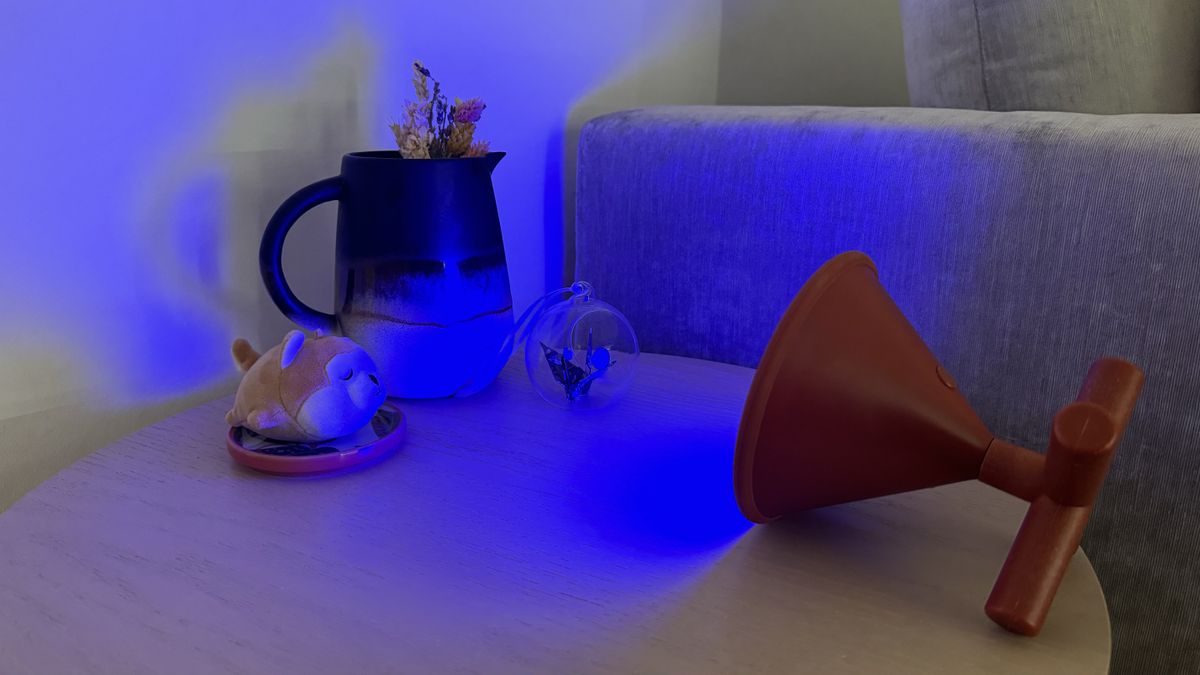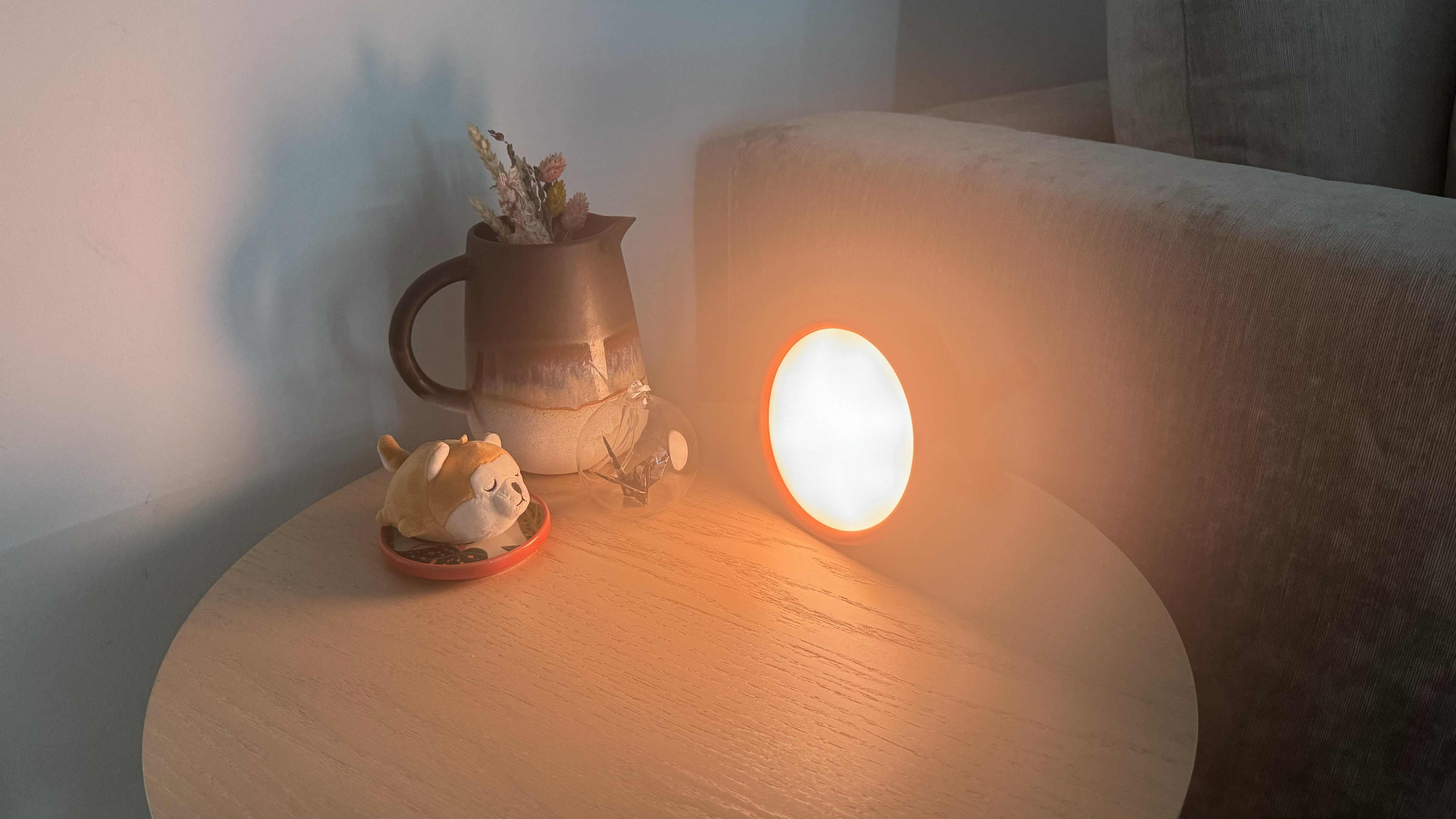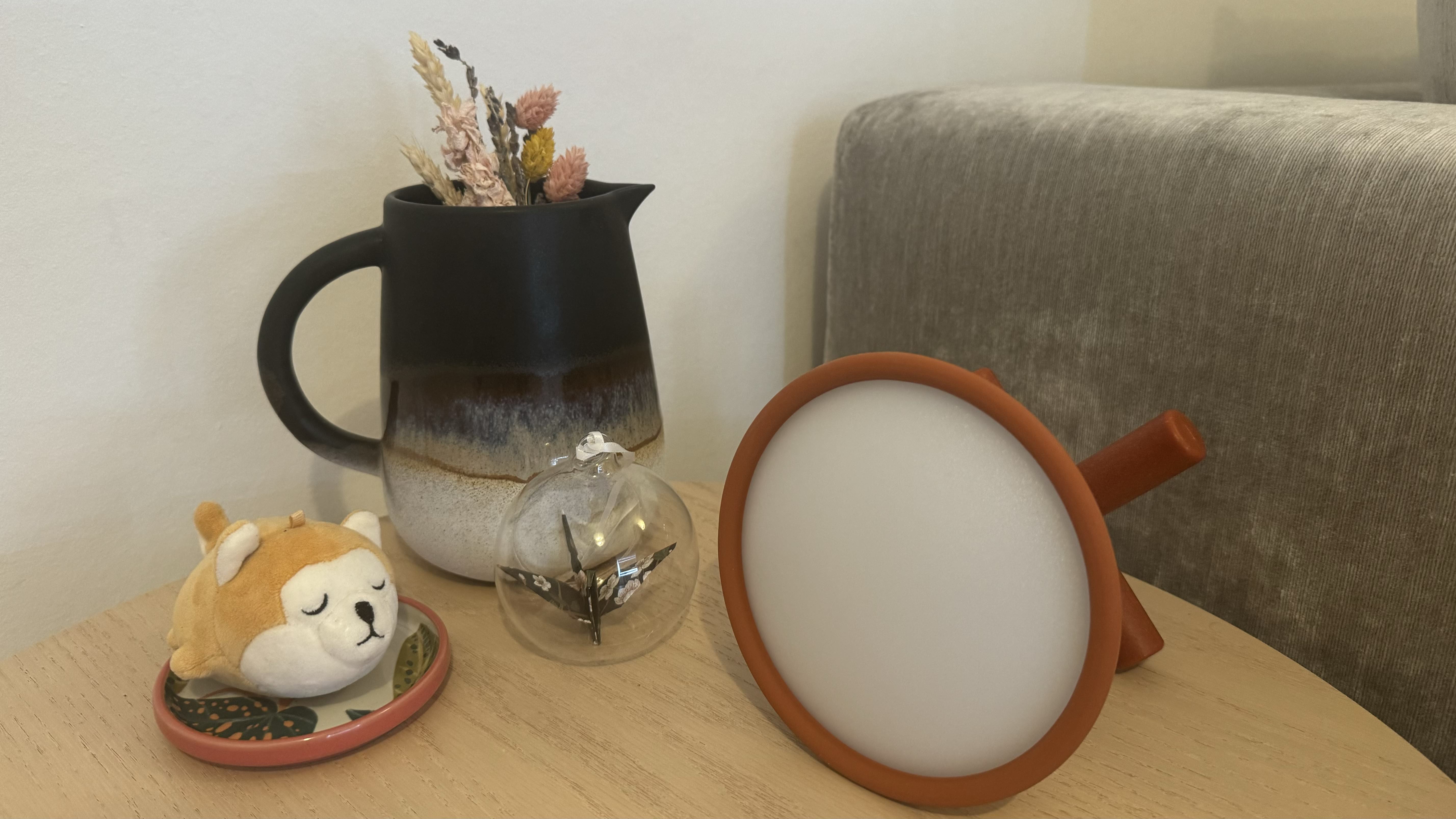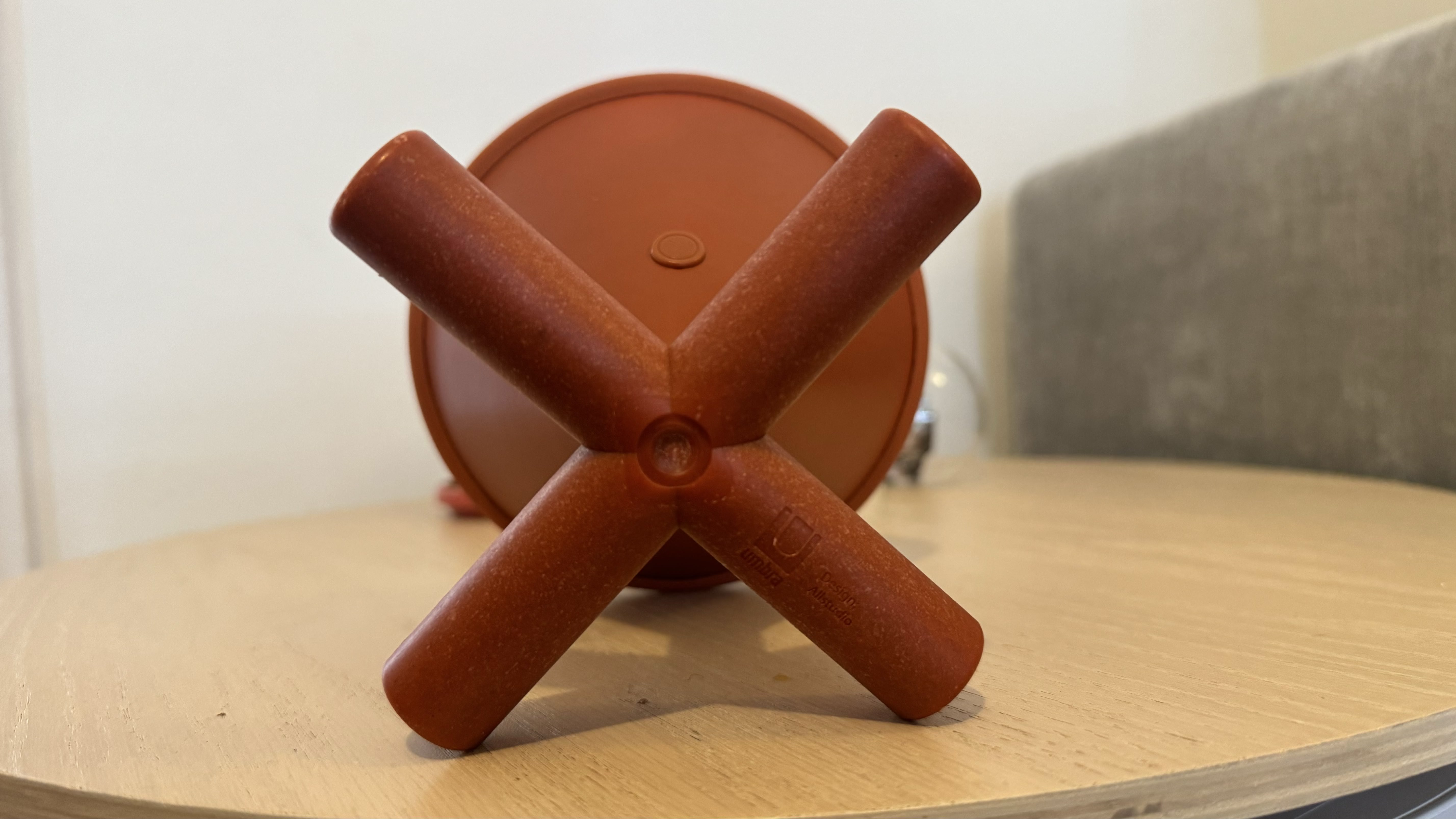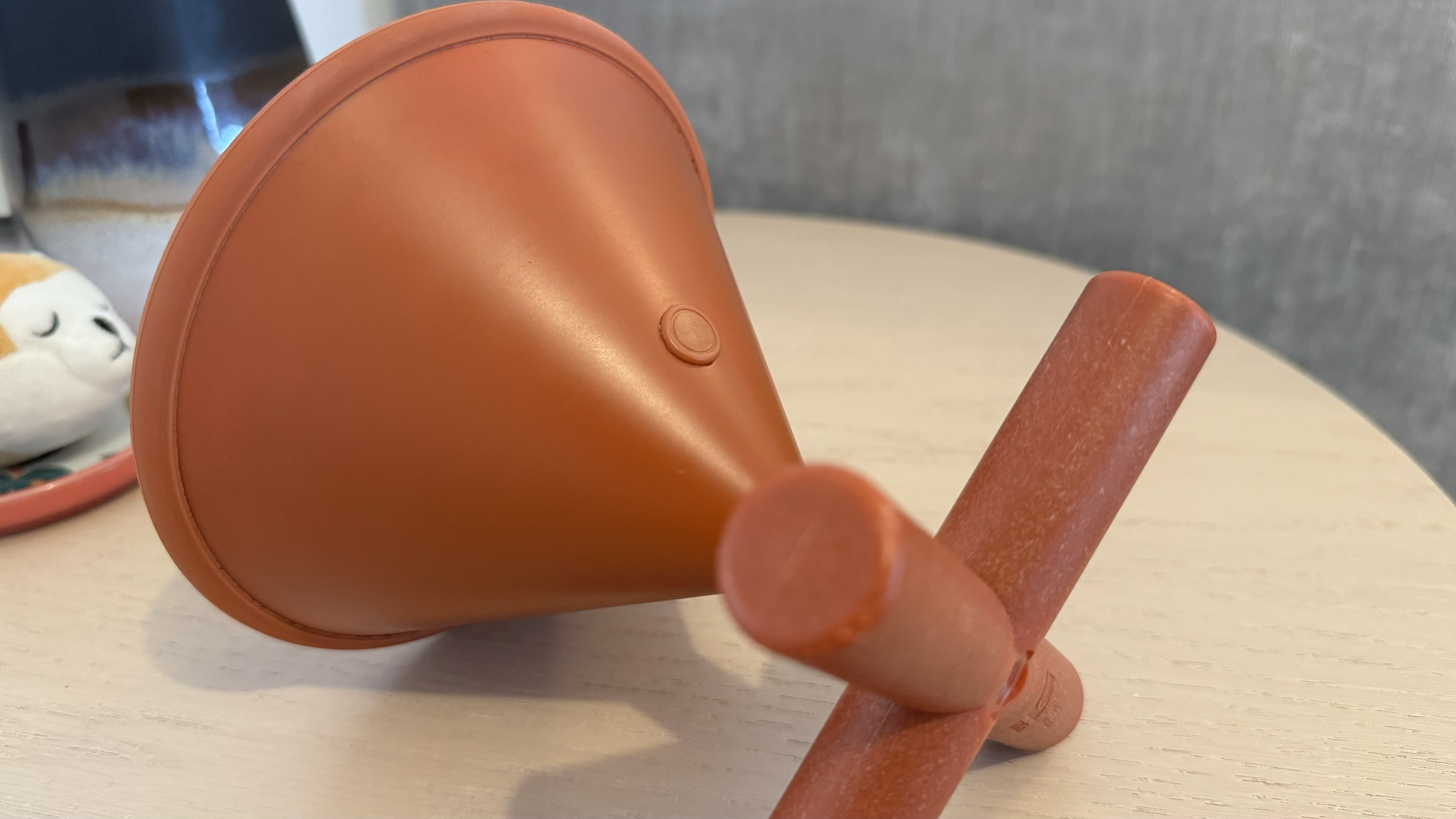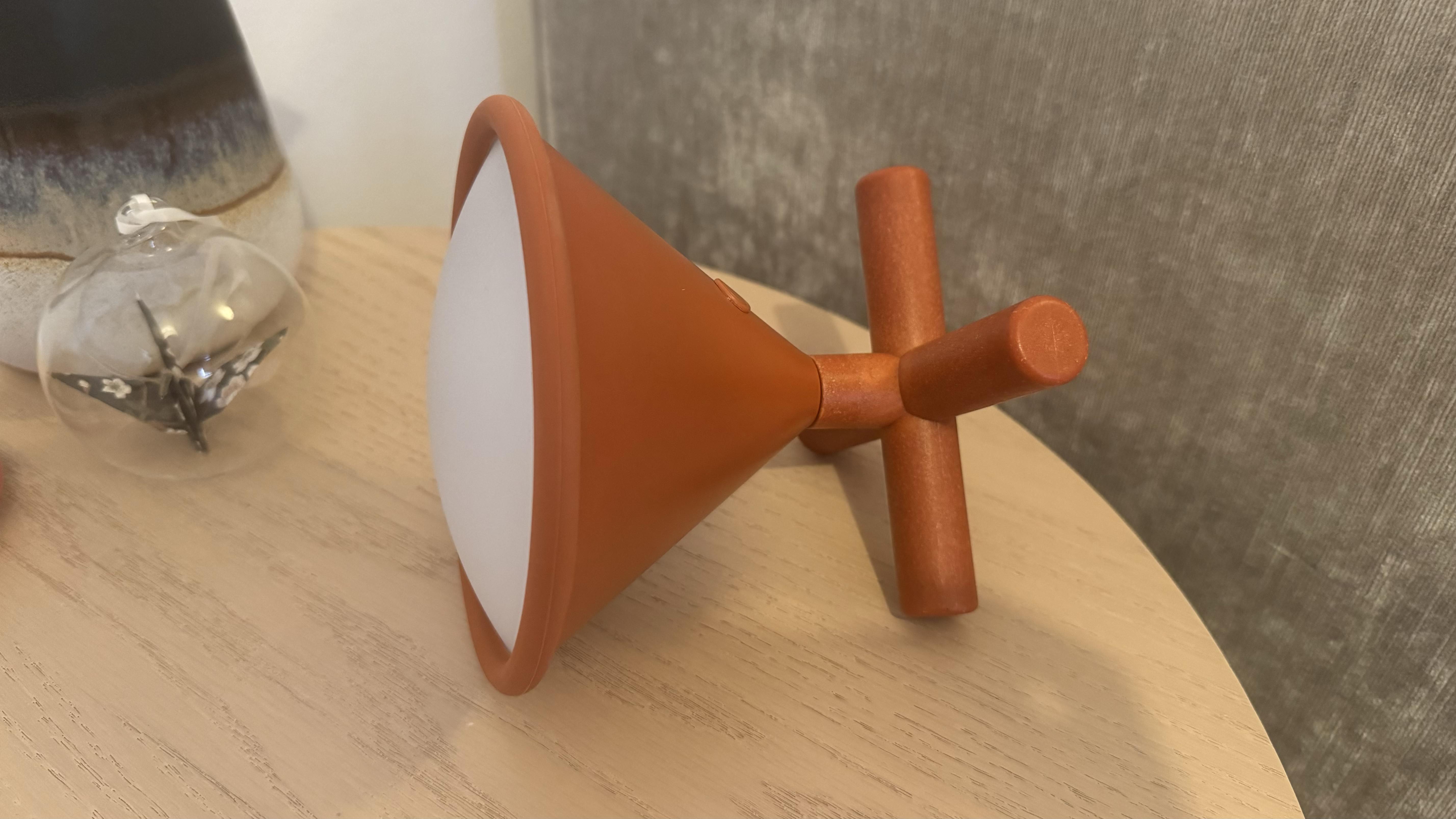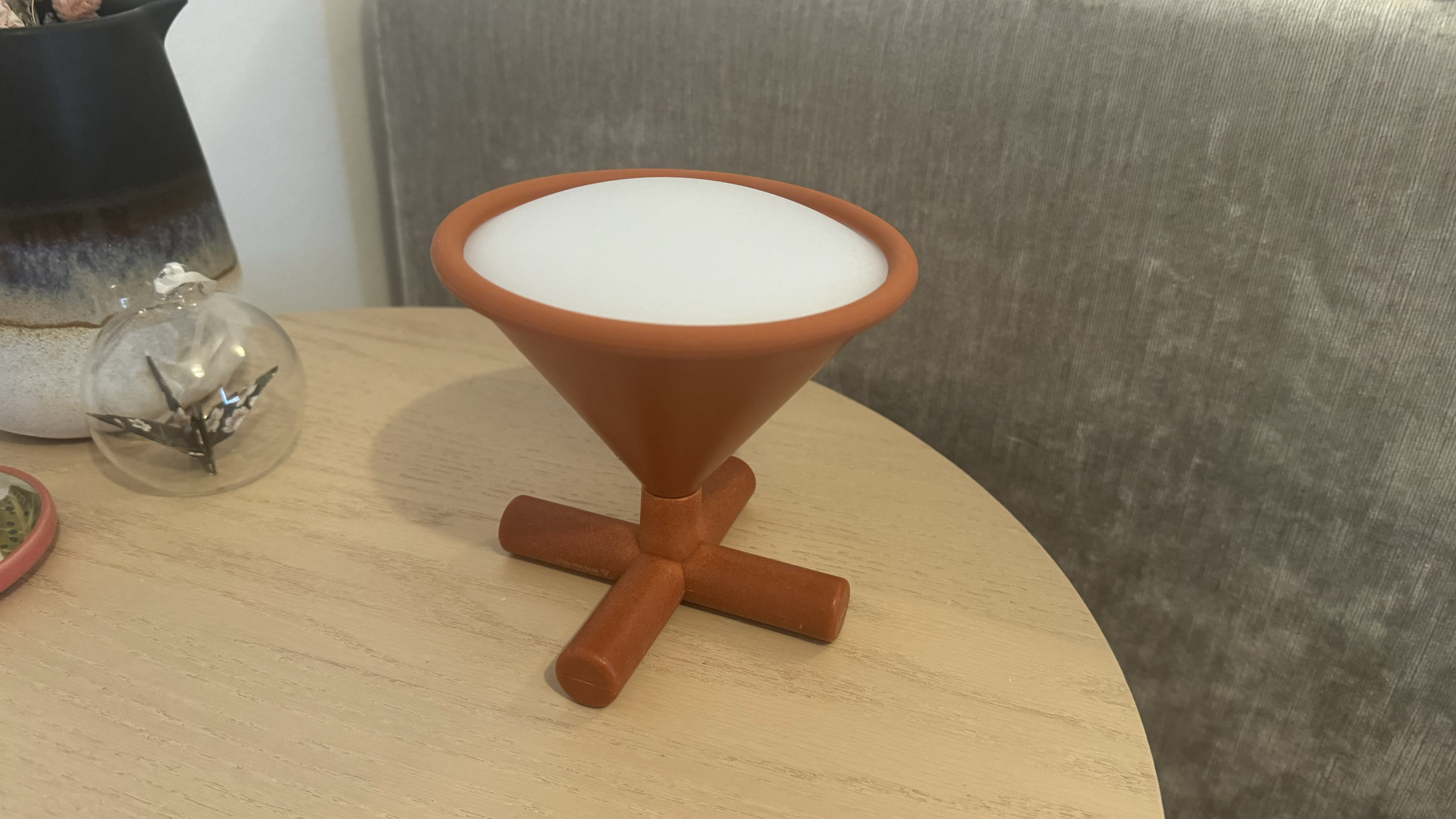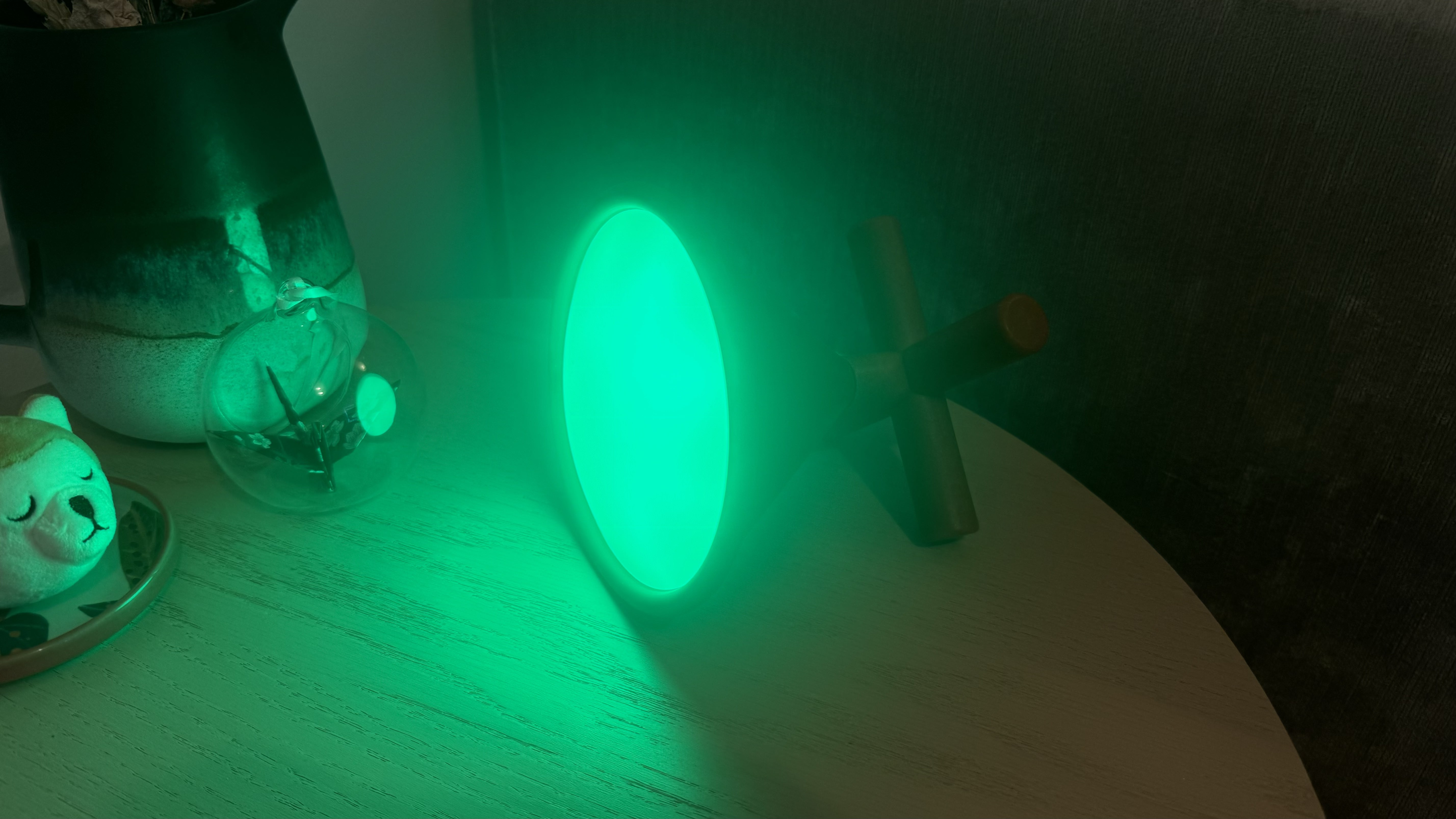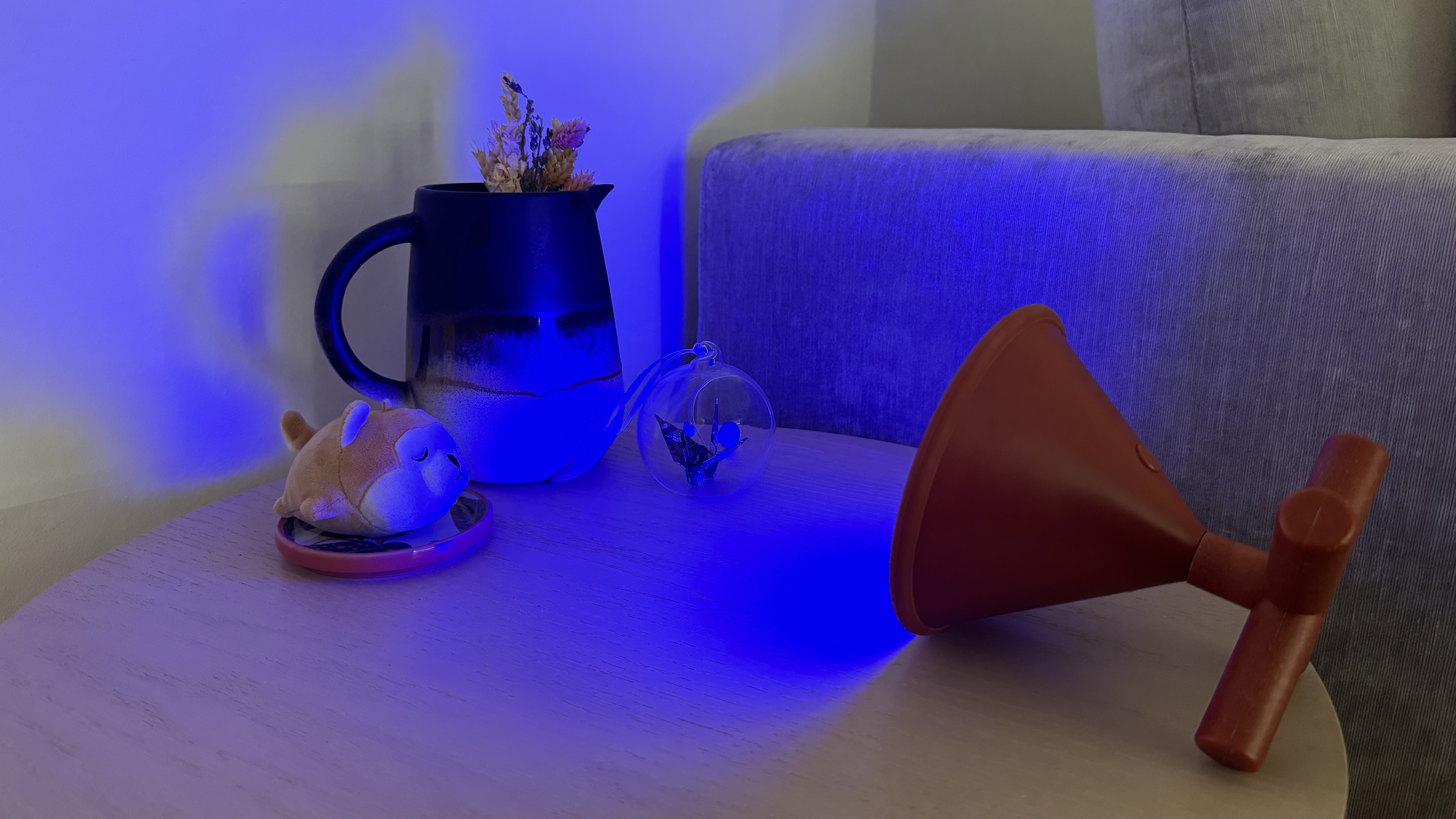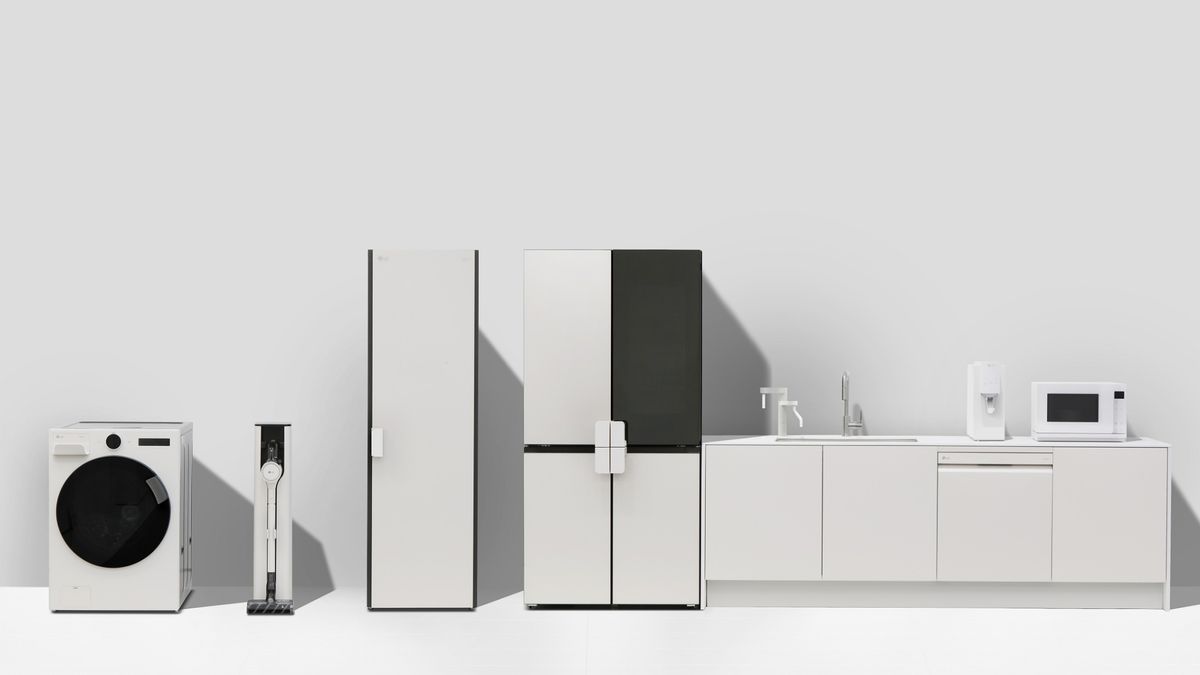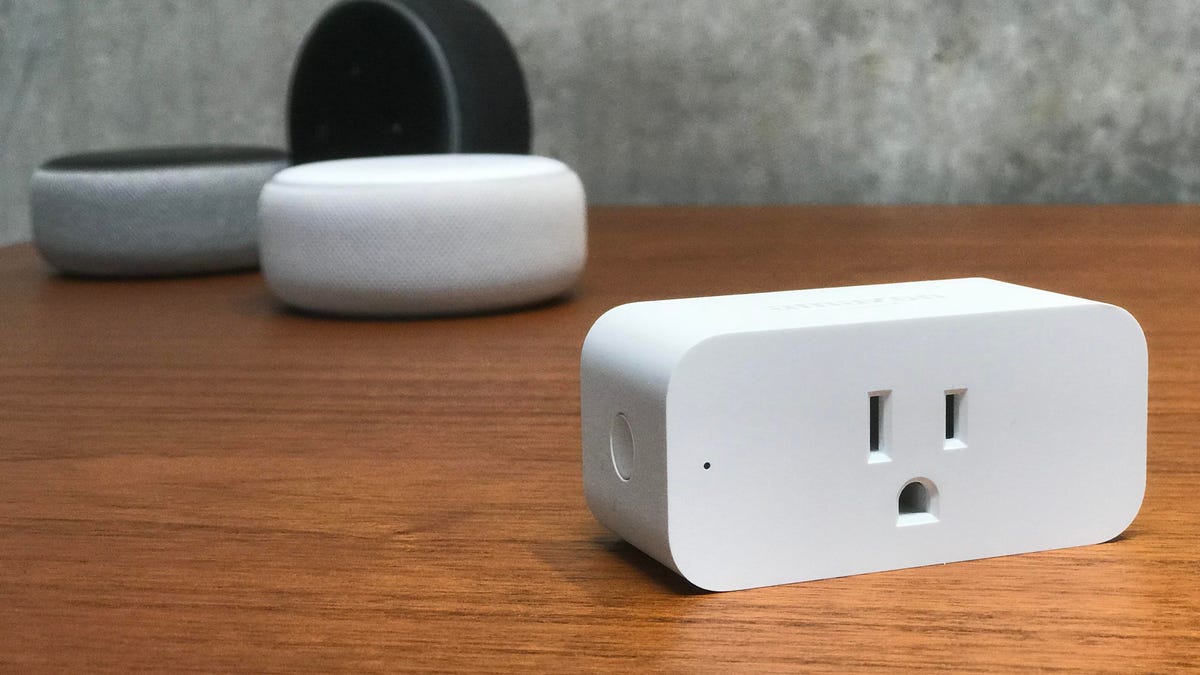One-minute review
If you’re in the market for a smart lamp with a bit of personality, look no further than the Nanoleaf x Umbra Cono Portable Smart Lamp. With interest in smart bulbs growing, many of the brands behind some of the best smart lights are moving towards different form factors, but such lamps have, thus far, been broadly uninspiring.
The Cono Portable Smart Lamp, on the other hand, not only offers some decent specs and lots of different software applications for immersive gaming, film and audio to help you make the most out of your smart lighting, but its unique design also makes it stand out from the competition.
| Header Cell – Column 0 | Nanoleaf Umbra Cono |
|---|---|
| Colors | Over 16 million |
| Lumens at 4000K | 130 |
| Lifetime up to | 25,000 hours |
Still, it’s not for everyone; when I first saw the Cono at CES 2024, I wasn’t quite sure what the fuss was about. However, seeing it ‘in the flesh’ and using it around my home has completely won me over. Available in both grey and orange (listed as Sierra), the Cono features cross-shaped feet that support the cone-shaped light casing, topped off with a beautiful, curved surface through which the light shines. Above the stem of the feet are its USB-C charging port and a simple, discreet, and touch-sensitive button, which you can use to control the light if you don’t fancy using its smart controls. These touch controls are a little disappointing, sadly, with a cheap finish that belies the lofty list price of $95 / £110.
Like other smart lights in Nanoleaf’s sprawling range, the Cono offers 16+ million colors, tunable whites, and 0-100% brightness control, and can be operated either with its physical controls, by using the Nanoleaf app or by using voice assistants in one of the best smart speakers or best smart displays. Out of the box, the device is compatible with Apple Home, Google Home, and Razer Chroma, but also plays nice with Matter, meaning it’ll work in tandem with most of the best smart home devices. It’s super easy to pair the Cono in Nanoleaf’s app, and just as easy to add it to any compatible smart home ecosystem. In the app, you can change the color with a color wheel or with one of eight customizable presets, create your own scenes, or select one from Nanoleaf’s sprawling library.
It’s not the kind of lamp that will entirely illuminate an unlit room; nor would I expect it to be at its size and price point, but it throws a decent spray of vibrant color into the room when turned on. However, the fact that you can angle it in so many directions (or even hang it off of things!) makes it excellent for setting the mood, highlighting a design accent in your room, or just for using it as an objet d’art lamp that you can control with your voice or phone. I’d like for it to be a little brighter, though, as the output lumen sits at just 130 lumens.
My only real qualm is its battery life. Depending on the brightness and color, the lamp lasts roughly four hours when unplugged, and only comes with a cable, meaning you might have to buy a USB plug if you were planning on having the lamp on regularly. Compared to something like the Philips Hue Go portable table lamp which offers up to 48 hours of battery life, or even the Philips Hue Go 2 which offers up to 24 hours, its marketed four-hour battery is measly. Thankfully, however, I found during my testing that it regularly exceeded this by a couple of hours. Still, I’d love to see it at least hit the 10-hour mark like the Wiz Luminaire portable lamp can for the price.
Overall, the Nanoleaf Umbra Cono Portable Smart Lamp is easily my favorite smart light in my setup right now. During my three weeks of testing, I found myself reaching for it instinctively rather than as a necessity for this review, and it’s one of my most commented-upon fixtures when I have guests. However, would I pay $95 / £110 for it? No, I would not. As much as I appreciate its design, performance, and ease of use, this is the kind of light I’d be keeping an eye out for during seasonal sales.
Nanoleaf Umbra Cono: Price and availability
As mentioned above, the Nanoleaf Umbra Cono Portable Smart Lamp will set you back $95 / £110, and is available directly from Nanoleaf as well as third-party retailers.
That’s a lofty price point for what is broadly speaking an aesthetically pleasing albeit middling portable smart light. If you adore the design and want it for exactly its intended use (being good-looking and as an additive light), it might just be worth it. However, considering there are plenty of (admittedly blander) smart lamps out there for far less that offer more brightness and additional features, I’d wait for seasonal sales before jumping on the cone-shaped bandwagon.
Out of the box, it comes with the lamp itself and a USB-A to USB-C charging cable, and there is no power supply included. Its lifetime is 25,000 hours.
Should I buy?
Buy it if…
Don’t buy it if…
Nanoleaf Umbra Cono review: Also consider
| Nanoleaf Umbra Cono | Philips Hue Go portable table light | Wiz Luminaire Mobile Portable Light | |
|---|---|---|---|
| Price: | $95 / £110 | $159.99 / £139.99 | $89.99 / £79.99 / $AU109.95 |
| Designed for: | Living room, bedrooms | Indoors and outdoors | Indoor |
| Voice command compatibility | Amazon Alexa, Google Assistant & Apple HomeKit | Amazon Alexa, Google Assistant & Apple HomeKit | Amazon Alexa, Google Assistant & Siri |
| Lumen output at 4000K: | 130lm | 530lm | 400lm |
| Lifetime up to: | 25,000h | 20,000h | 25,000h |
| Dimensions: | H14 x W13 x D13 cm | H35 x W14.2cm at widest | H19.3 x L11.6 x W11.6cm |
| Net weight: | 0.3kg | 0.97kg | 0.65kg |
How I tested the Nanoleaf Umbra Cono
- I tested the Nanoleaf Umbra Cono for a month
- I used it as part of my smart lighting setup
- I paired it via Bluetooth and Alexa via. Matter
I used the Nanoleaf Umbra Cono portable smart lamp for three weeks, using it throughout my home for mood lighting, spotlighting, and general use. I tried positioning it in various locations, leveraging the full potential of its versatile design and used the full range of its brightness, color, and tunable white settings to test how well it performed in different situations.
I paired the Cono in my Nanoleaf app as well as my Alexa-based smart home (possibly thanks to the light’s Matter compatibility) and found the device worked as expected and was easy to control.
I’ve been testing smart home tech for a living for two years now, but I’ve been passionately writing about all things smart and the Internet of Things for over five years. I’ve spent hours learning the ins and outs of Alexa, throwing shade on smart lights, and reading up on new technologies that matter, all of which helps to inform my review approach and buying advice.

